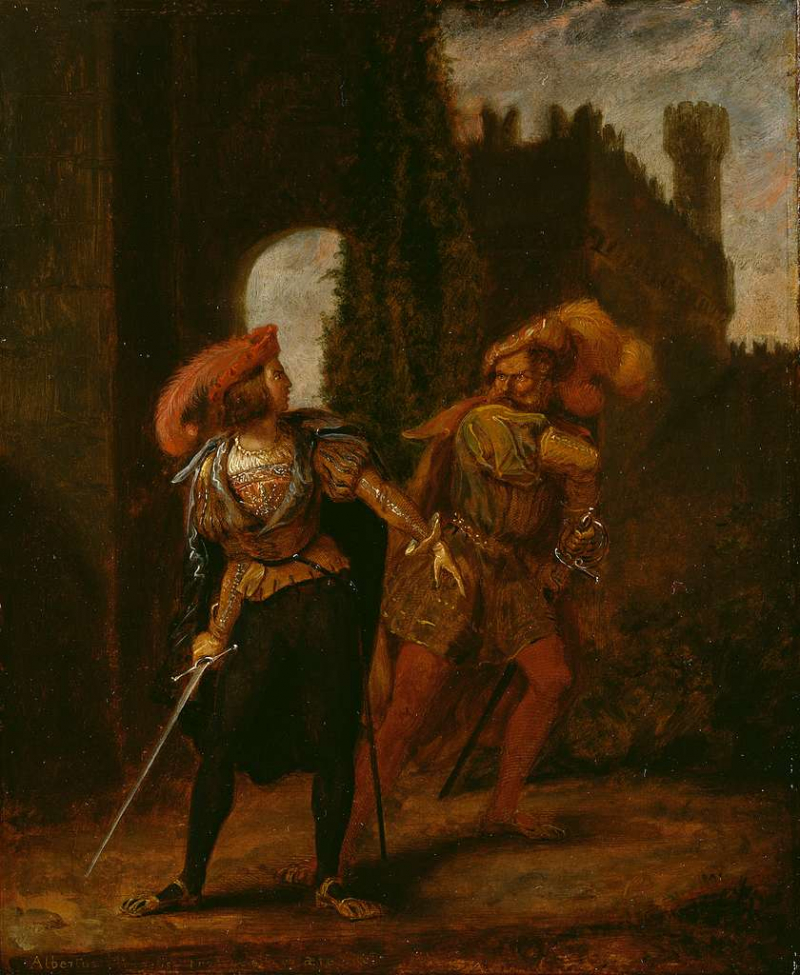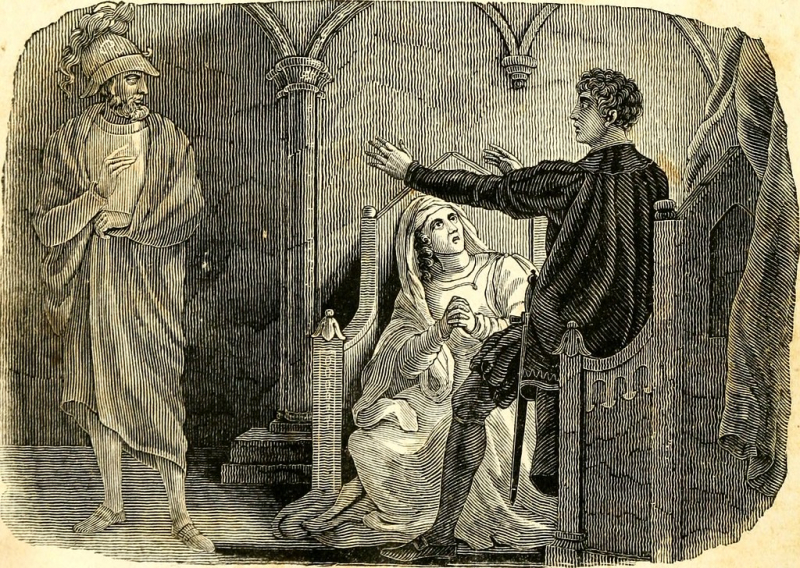Romeo gets banished by the Prince; why?
In Verona society, a murderer would typically be executed by hanging. Romeo's father Montague says, "His fault concludes but what the law should end, / The life of Tybalt," (3.1.181–182) hoping that the Prince will realize that Romeo killed Tybalt for killing Mercutio. The Prince seems to agree in part when, rather than putting Romeo to death for killing Tybalt, he just exiles him.
In Act III, Scene I, the Prince states:
"And for that offence
Immediately we do exile him hence.
I have an interest in your hate’s proceeding,
My blood for your rude brawls doth lie a-bleeding;
But I’ll amerce you with so strong a fine
That you shall all repent the loss of mine.
I will be deaf to pleading and excuses.
Nor tears nor prayers shall purchase out abuses.
Therefore use none. Let Romeo hence in haste.
Else, when he’s found, that hour is his last." (III.1.184–191)
The Prince, in an attempt to maintain order and curb the violence in Verona, chooses the punishment of exile for Romeo instead of death. This decision sets the stage for the subsequent events in the play, leading to further misunderstandings and tragic consequences.

















